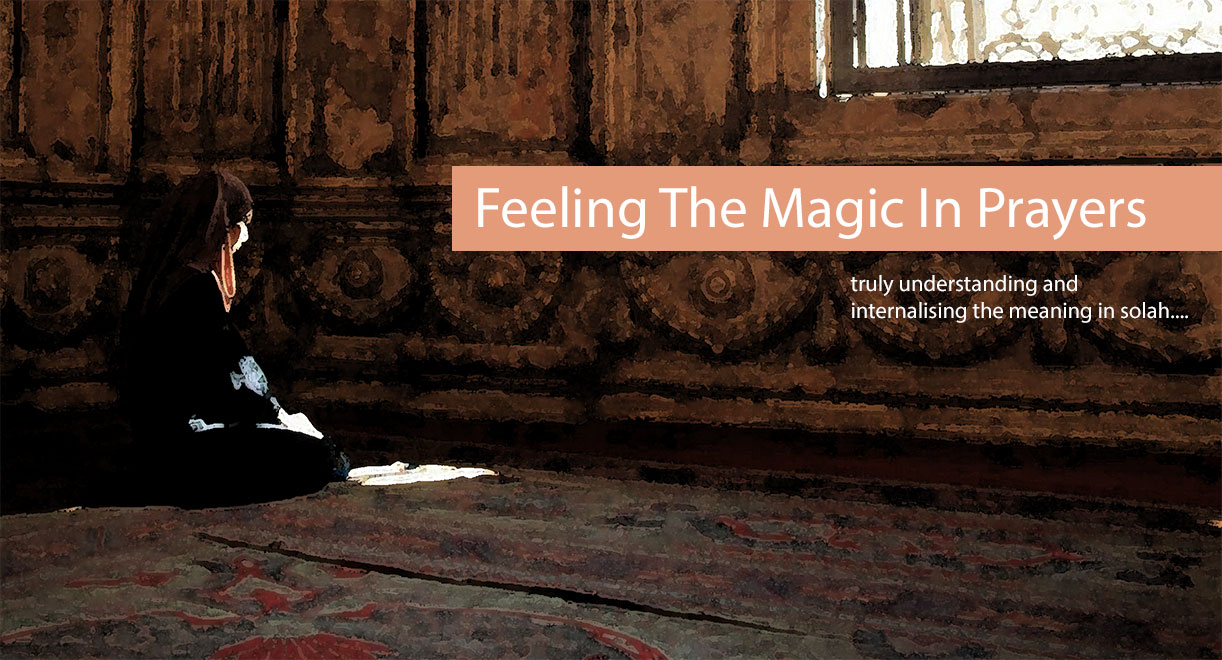
In accordance with the glorious Quranic verses :
Allah and His Angels
Send blessings on the Prophet;
O ye that believe!
Send your blessings on him
And salute him
With all respect.
Allah’s protection we seek against Satan, the accursed. In the name of Allah, Most gracious, Most Merciful. Praise be to Allah, the Cherisher and the Sustainer of the world. Blessings and Peace be upon the worthiest of all the Prophets and Messengers, who was sent to humankind out of mercy, our liege-lord Muhammad, upon his family, his Companions, and all those who have been guided by him and now hold fast to his Sunnah (tradition) up until the Day of Judgment. O Allah, Glory be to You. We know nothing but what You have taught us, for You are the All-Knowing, the All-Wise. Bestow on us, O Guardian-lord, mercy from Yourself and dispose of our affairs for us in the right way.
On the Provision of the Shar` ( Islamic Law) Regarding Devotion to the Messenger of Allah
Devotion to the Apostle of Allah (peace and blessings be upon him) is one of the primary and essential duties of a genuine believer. Without it, faith remains seriously wanting. The Holy Book, the Sunnah (or the Tradition of the Prophet), along with the prevailing opinion in the entire Islamic Ummah, stress the fact that loving-kindness and respect are due to the Prophet who has been enormously beneficent to us all. He has (by Allah’s leave) guided us towards the right faith and the straight path and led us out of the darkness of error into the light of knowledge. He has been instrumental in all the good we have known, and in the pious deeds we have performed. Through these deeds we pray for Allah’s forgiveness and favor that we may be admitted to His Heaven and be averted from (hell) fire.
Thanks to our adherence to his faith and our observance of His Shari’a, we have become the best of people ever evolved for mankind – an Ummah whose belief in and profession of the pure Gospel of Unity has made of it the blessed upholder of the true faith, a faith chosen for us by Allah. Thanks to our Prophet we have not only been guided to the right faith (none other than which will be accepted to Allah) but also made witnesses bearing testimony over nations. We Muslims are also indebted to the Prophet (peace and blessings be on him) for his intercession on our behalf on the Day of Judgment. On that day not a (believing) soul – not even one possessing a mustard grain’s worth of faith – shall remain eternally in hell. In short, were it not for Allah’s Favor in sending His Messenger to guide us, we would be real losers in a state of utter ignorance and error. In return for all the favors and the services rendered to us, it behooves us to show devotion and respect to him. As one wit aptly expresses it:
Do good unto people and you shall capture their hearts
Many hearts have, through good deeds, been won.
Goodness to others, even when it is partial and limited, warrants gratitude and recognition. And gratitude ought to be all the more important and deep to someone whose kindness has been far-reaching, all-embracing and everlasting. The Prophet’s kind solicitude has affected the lives of Muslims not solely in matters pertaining to the here but also extended it to our existence in the hereafter – and verily the hereafter shall be better than the here.
Besides Allah’s favors, the Prophet’s goodness stands peerless. For this reason, our devotion to him should never fall short of his unique kindness to us. Our devotion to him should indeed exceed our love for our own children, our parents, and our kin and kith. There is evidence to suggest that the magnanimous Companions of the Prophet had shown unparalleled devotion and faithfulness.
Imam Al-Bukhari and Imam Muslim report in their respective Sahihs that the Apostle of Allah once said: “not until he has shown me devotion greater than that manifested towards his closeset kin will a man become a true believer”. A case in point: when Ali (may Allah honor him) was asked how strong his devotion to the Apostle of Allah was he replied: “By Allah, we cherished him more than we did our children, our parents, and all of our possessions. He was much dearer to us than fresh water is for a thirsty soul”. Such was the esteem and the honor the Prophet was held in by his Companions. By the same token, the hearts of true believers ought to be filled with similar devotion to the Apostle. Habit has it that when a person loves something he shows it by caring for it, speaking in glowing terms of it, and being faithful to it.
Sending blessings on the Apostle of Allah is certainly the best way of invoking him, in compliance with the command of the Almighty. In thus blessing him we show him gratitude and acknowledge his many favors to us. To send blessings on the Prophet is but a small payment for the many benefits and good we have seen through him. In truth, to thank the Prophet is to thank Allah, and Allah is all-approving of those who honor His Messenger. Blessing the Prophet in token of devotion, obedience and worship gets the believer closer to Allah. The Almighty reserves the best of rewards and the most complete forgiveness for those who continually bless His Apostle. Suffice it to point out in this respect that it is out of honor and commendation of His Apostle that Allah, in a Quranic verse starting with His Divine Self and followed by His Angels, orders His servants thus:
An Exegesis of the Verse under Consideration and Explanation of its Contents
Allah and His Angels
Send blessings on the Prophet;
O ye that believe!
Send your blessings on him
And salute him
With all respect.
To provide a brief context for the above, and according to Al-Hafid bin Hijr, who has it from Aby Dharr Al-Harawy, the verse is the fiftieth of Sura Al-Ahzab (or The Confederates) which was revealed in the second year of the Hegira.
Al-Hajid Asskhawy also reports on Ibn Aby-Sath Al-Yamany that Sura Al-Ahzab was sent down during the month of Sha’aban. Further commenting on the same issue, the same scholar says that Sha’aban is a month during which blessings are sent on the Apostle of Allah (peace and blessings be on him). It is worth pointing that the same Sura also includes a verse in which Allah commands His servants to glorify the Prophet, to show due respect to his family, and to avoid any form of unseemly or hurtful behavior towards him and his wives, the mothers of the believers (may Allah be pleased with all of them). The most High thus states:
O ye who believe!
Enter not the Prophet’s houses, –
Until leave is given you,-
For a meal, (and then)
Not (so early as) to wait
For its preparation: but when
Ye are invited, enter;
And when ye have taken
Your meal, disperse,
without seeking familiar talk.
Such (behavior) annoys
The Prophet; he is shy
To dismiss you, but
Allah is not shy
(To tell you) the truth.
Allah, to whom might and majesty belong, then commands people to honor the Prophet:
Allah and His angels
Send blessings on the Prophet
O ye that believe!
Send your blessings on him,
And salute him
With all respect.
Those who vex or try to cause hurt or injury to the Apostle of Allah (peace and blessings be on him) receive a strong warning which reads:
Those who annoy
Allah and His messenger
Allah has cursed them
In this world and
In the Hereafter,
And has prepared for them
A humiliating punishment.
The above verses serve to corroborate the idea mentioned in the preceding one, namely, the necessity to honor the Prophet and his consorts who are held in high esteem both by the Beneficient Creator and by His exalted and venerable angels. It is important to stress the fact that Almighty Allah who is free of all needs and worthy of all praise, does send His blessings on His Messenger, as do His honorable angels who obey all of Allah’s commands and glorify their Lord continuously and tirelessly. Evidence of the wonderful workings of the angels is evoked when the Most High says: “They arrange to do (the commands of their Lord)”. Despite the numerous and demanding divine missions and errands they are entrusted with, the angels are prompt to give the glory to the Prophet (peace and blessings be on him). Should we not, after their fashion, be the first ones to bless the Prophet, we, believers, who have been commanded to follow his right path and to benefit therefrom? Should we not be the first ones to honor him, we, believers, who still hope for his intercession on our behalf and aspire for his companionship in Heaven?
To resume commentary on the afore-mentioned verses, we should point out that they begin by informing the servants of Allah that the Most High, along with His angels, send their blessings on the Prophet, then moves on to urge the believers to follow suit and honor him in requital for his many favors, which the Guardian-Lord beautifully describes when He says:
Allah did confer
A great favor
On the believers
When He sent among them
A messenger from among
Themselves, rehearsing
Unto them the signs
Of Allah, purifying them and instructing them
In scripture and wisdom,
While, before that,
They had been
In manifest error.
To emphasize the necessity of blessing the Prophet, the verses include a nominal clause suggesting the continuity and permanence of glorification. The nominal clause is introduced by inna, an intensifying particle, having the force of truly or verily. The particle, in other words, serves to reinforce the special honor in which the Prophet is held and the eminence and distinction conferred on him by His Lord. This exalted and noble position, one of Allah’s blessings, makes the Prophet all the more worthy of our respect, honor, and glorification.
No words can really express the real nature or the degree of Allah’s esteem and glorification of His Messenger (peace and blessings be on him). Al Qadi `Iyad, for instance, points out that “the general consensus is that the verses under consideration contain a degree of glorification not found in any other Quranic verse.” In support of this point, let us not forget that, according to a narration by Ibn Mundir, who has it from Ibn Jareek, the Prophet’s Companions (may Allah be pleased with them all) had rushed to congratulate the Apostle of Allah soon after the verses had been revealed. The fact that the Companions had not done so before indicates that they were fully aware of the implications of the verse and of the magnitude of the honor bestowed on the Prophet.
Along the same lines, Al-Fakahany observes that the gist of the verses in question is that Allah and His Angels continually send their blessings on the Prophet. The servants of Allah, past and present, would wish for only one of those Divine blessings; nay, if a rational being were given a choice between having all kinds of good deeds registered on his records and receiving one of His Lord’s blessings, he would most certainly opt for Allah’s benediction. We might well imagine the high honor bestowed on one who is continually blessed by the Guardian-Lord and His Angels! Similarly, Sahl bin Mohammad Suleyman says:
The honor conferred by Allah on His servant, Muhammad (peace and blessings be on him) when he states ‘Allah and his Angels send their blessings,’ is far more significant than Allah’s command to His Angels to prostrate before Adam, if only because bowing to Adam precludes the Most High. The prostration of the Angels to Adam, moreover, was a lone occurrence whilst the Angels’ benediction on the Prophet is a continuous process.
The Almighty adds His Divine Self to His Angels in sending blessings on the Prophet out of glorification and esteem of His Messenger. To give an idea of the momentousness of the event, it is noteworthy that all the Angels, notwithstanding their number and rank, glorify the Apostle of Allah (peace and blessing be on him).
It is reported in the Hadith of Isra’ (the Night Journey) and Al-Mi`raaj (the Ascension) that there is not a stretch of space in the wide heavens but that it is occupied by a prostrating or bowing angel! On any given time of day or night the populous dwellings of Heaven are frequented by no less than seventy-thousand cherubs. To these denizens might be added the honorable guardians of the Heavens, the Records’ keepers (who register the good and bad deeds of humankind), the Bearers of the Throne, the Angels surrounding the Divine Throne, the Keepers of the Gates of Heaven and Hell, the Angels entrusted with the movements of clouds, rain and other natural phenomena, the Angels in charge of sperm-drops in wombs, the Angels of Life and of Death, and many other Angels running countless other errands and missions. The Apostle of Allah (peace and blessing be on him) also speaks of a group of Angels who have been entrusted with informing him, as he lay in his sepulcher, of each and any blessing sent on him by a member of his Ummah. In short, there is enough evidence in the above to prove that Allah has bestowed on His Apostle an honor and glory not granted to any other being or angel.
When Allah, Most High, said “Allah and His angels send their blessings on the Prophet,” He did not address him by his proper name but rather by the title of prophethood and of the Divine Message. In this there is a clear privilege, for Allah had addressed the other messengers by their names, as evidenced by the following summons: “O Adam,” “O Noah” “O Abraham,” “O Moses,” “O Jesus,” “O Zakaria,” and so forth. Not once did Allah address His dear Messenger by name. Even when the Prophet is mentioned together with Abraham within the same context, he is not addressed by name:
Without doubt, among men,
The Nearest of kin to Abraham
Are those who follow him,
As are also this Prophet
And those who believe;
The only time the Prophet is addressed by his name is when the context requires that His name be mentioned as a means of testifying to his Prophethood and of confirming his role as the Seal of All Prophets. Equally significant is the fact that Allah had taught the Islamic Ummah courteous behavior towards His Apostle. He forbade them, for instance, to address the Prophet familiarly as they would one another. Almighty Allah says:
Deem not the summons
Of the Messenger among yourselves
Like the summons of one
Of you to another.
Prior to the revelation of the above verses, some people used to address the Prophet by his name, “O Muhammad”, but when the verses were revealed, they started to address him more respectfully as, “O Messenger of Allah,” or “O Prophet of Allah.” The same kind of respect is shown the Prophet even during his absence; the mentioning of his name is always accompanied by due blessings and salutations.
The verses under consideration include further instances of honor and glorification: in the original Arabic the equivalent of the word prophet is preceded by al which has the force of the defining article, “the.” This indicates the uniqueness of his role, the universality of his mission, and his special presence in the minds of the believers. Additionally, when Allah sent His blessings on His Prophet, He used the term Prophet (Nabi), not messenger (Rasul). This is significant. According to exegetes, the role of messengers consists in the simple act of transmitting a given message; the role of the prophet, by contrast, is weightier because it involves receiving divine revelation and acting upon it. It is important to stress the fact that not all messengers are prophets and that not all prophets are messengers. Pertaining to prophethood are a number of other definitions which the limitation of time does not allow us to dwell on.
To resume our commentary on the Quranic verses under consideration, we can say that Allah, Most High, having informed His servants that He and His angels send their blessings of the Prophet, ordered the believers to praise and honor His Messenger. Allah thus unites the world down here with the world above in the act of glorification, which is performed out of gratitude and reverence. In the Quranic verses under study, Allah casts the act of invoking blessings in the form of a command. That means that believers should, in compliance with the Apostle’s own teachings, say: “may Allah’s blessings and peace be on (our liege-lord) the Apostle of Allah.”
It is reported that the Prophet had asked his Companions to send their prayers on him while uttering ash-Shahada (the solemn declaration that there is no other god but Allah and that Muhammad is His Apostle). He explicitly instructed them to say: “Peace be on thee, O Prophet, May Allah’s mercy and blessings be on thee.” When the verses under consideration were revealed, the Companions turned again to the Prophet asking him about the most appropriate way to send their benediction on him. The Prophet then taught them to salute him the way Prophet Abraham had been saluted, that is, they should say:
May Allah send His blessings on our liege-lord Muhammad and on his family the way He had sent them on our liege-lord Abraham and on his family. May Allah grant peace to our liege-lord Muhammad and to his family the way he had granted it to our liege-lord Abraham and to his family.
There are of course slight variations in the manner of sending benediction on the Prophet, but the essence is the same. It should be stressed that the use of the command is intended to mean an obligation; believers are obligated to bless and salute the Prophet, in compliance with Allah’s command.
Only an ungrateful individual would willfully neglect that duty. Imam ash-Shafi`i (may Allah’s peace and blessings be on him) asserts that we are beholden to bless the Prophet (peace and blessings be on him) during the performance of prayers and prior to the final salam (salutation). Blessing the Prophet, according to Imam ash-Shafi`i, is a divine duty without which the obligatory prayers are rendered null.
It is worth pointing that a number of scholars, both Malikites and non-Malikites, agreed with Imam ash-Shafi`i on this issue, including Muhammad bin Al-Mawwaz, Abu-Bakr Ibn al-`Arabi, Ishaq bin Rahawayh, As-Shaaby, and Imam Al-Bakir. In short, numerous `Ulama from the four major schools agreed upon the necessity of praising and honoring the Apostle of Allah (peace and blessing be on him) whenever his Sharifiyyan name is uttered or heard. These scholars contend that such blessings are mandatory because the criticism directed against those who are neglectful of that duty is severe and is often marked by threats. And threats, they further point out, do not normally accompany recommendable or desirable acts.
In support of their claims the same commentators advance a number of Hadith-sayings which read: “wretched is the man who fails to send his blessings on me when my name is mentioned in his presence,” or “shall be led away from the path of Heaven anyone who fails to send his benediction on me when my name is mentioned in his presence,” or again, “the nose of he who fails to bless me when my name is mentioned shall be rubbed in the dirt …” In yet another saying, the Prophet states: “shall be banished (from Allah’s mercy) anyone who fails to send blessings on me when my name is mentioned (in his presence).” These words are in truth attributed to the Archangel, Gabriel, who, ascending the minbar (pulpit) is reported to have told the Prophet, “shall be banished from Allah’s mercy and forgiveness anyone who willfully fails to send his blessings on thee when thy name is uttered (in his presence).” To this the Prophet replied, “Amen.” Another version of the same report adds banishment and doom to hell-fire as forms of punishment reserved for those who do not pay respect to their liege-lord.
The above reports, needless to say, are characterized by strong threats which all Muslims should take seriously in order to avoid the dire consequences of failing to show due respect to the Prophet when he is invoked. In another Saying the Prophet states: “niggardly indeed is the man who hears my name uttered but does not send his blessings on me.” There is no doubt that the Prophet had said the truth: to withhold blessings, which do not demand much of one either in terms of money, effort, or even words is utter meanness and niggardliness.
According to Ibn al-`Arabi, it is advisable for Muslims to see to it that they pay due respects to the Prophet whenever his name is uttered in an assembly. The Prophet (peace and blessings be on him) had disapprovingly said of an assembly which neglected to bless him, “their council is woeful and punishable they who gather together and fail to invoke Allah and to bless His Prophet … If Allah so wills He will chastise them, and if He so chooses He will forgive them”. About the same people, the Prophet also says: “they shall be full of distress and regret even if they are granted admission to Heaven to plead for the forgiveness they had missed.” He also said, “As they disperse from their (wretched) assemby they shall be stinkier than the decaying cadaver of a donkey”. In view of such strong statements, some scholars (`Ulama) consider that each and every assembly should invoke the Prophet and salute him respectfully at least once, particularly in venues where it is recommended to do so. There are more than forty such places, according to some scholars.
The Prophet had recommended to the believers to be particularly lavish in their praise on Fridays, as stated in the following Saying: “verily, Friday is the best of your days. Be thou generous in sending your benediction on me on that day, for all of your blessings are conveyed to me.” Upon hearing this, a congregation enquired: “how can our prayers be transmitted to you after you die and turn to dust, O Apostle of Allah? “To this the Apostle of Allah replied: “Allah has forbidden the earth to consume the bodies of prophets. The Apostle of Allah lives, finding his sustenance from his Lord.”
In another Hadith-saying, the Prophet says: “Allah and all of His Angels convey to me the blessings and salutations sent to me by the members of my Ummah; therefore, wherever thou might be, send thou your benediction on me.”
Conclusion
“Allah and His Angels send blessings on the Prophet: O ye that believe! Send ye blessings on him, and salute him with all respect”.
“Glory to thy Lord, the Lord of Honor and Power! (He is free) from what they ascribe (to Him)! And peace on the apostles! And Praise to Allah, the Lord and Cherisher of the Worlds”.
Written by: Professor Al-Hassan bin Asseddiq
With thanks to Morocco’s Ministry of Waqfs and Islamic Affairs








